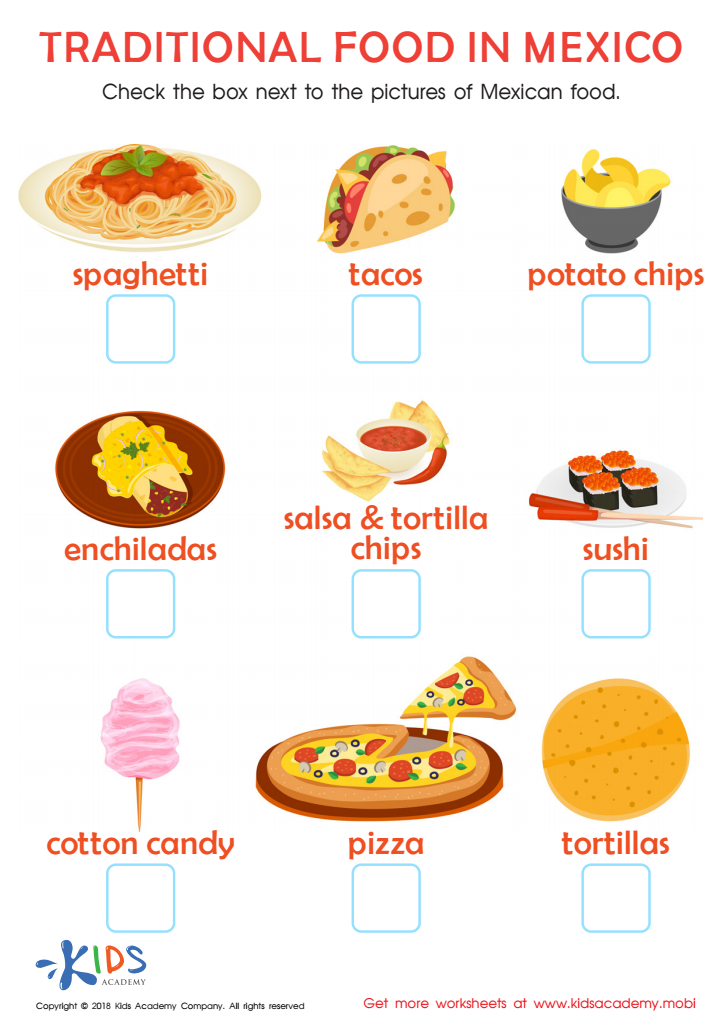Mexican culture exposure Worksheets for Kids
1 filtered results
-
From - To


Traditional Food in Mexico Worksheet
Question/Answer
What does the Mexican culture exposure skill mean when it comes to Grade 1 Community learning?
The Mexican culture exposure skill in Grade 1 Community learning refers to introducing first-grade students to aspects of Mexican traditions, values, language, and customs. It aims to broaden their understanding of the world, foster respect for cultural diversity, and help them appreciate the rich cultural tapestry that the Mexican heritage contributes to their community.
How does the mastery of the Mexican culture exposure skill affect a student's performance at an early age?
Mastery of the Mexican culture exposure skill at an early age can significantly enhance a student's performance by broadening their cultural understanding and empathy, improving language skills through bilingualism, and increasing cognitive flexibility.
Why is the Mexican culture exposure skill important for Grade 1 students?
The Mexican culture exposure skill is important for Grade 1 students as it promotes cultural awareness and diversity understanding from an early age. It introduces students to different perspectives and traditions, fostering inclusivity and respect for others.
 Assign to the classroom
Assign to the classroom











